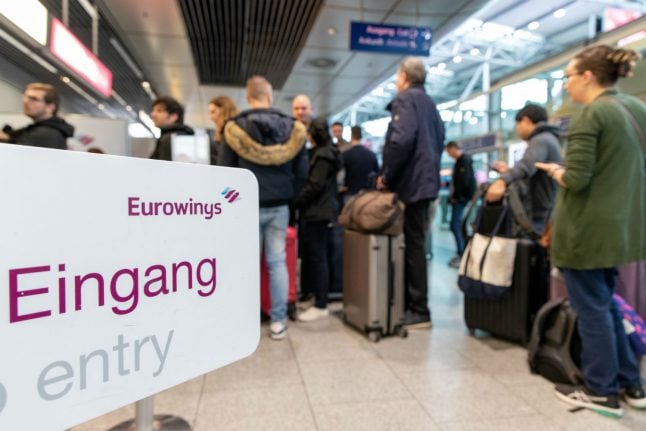The walkout, called by the UFO cabin crew union, was initially set to last from 5:00 am until 11:00 am but a worsening spat with Lufthansa bosses prompted the union to extend the strike until midnight.
The industrial action at Eurowings, Germanwings, SunExpress and Lufthansa CityLine led to over 100 flight cancellations, mainly hitting short-haul journeys at Hamburg airport, Munich, Berlin-Tegel, Cologne and Stuttgart, according to DPA news agency.
There were no additional strikes planned as of Monday morning. But other demands for better conditions have yet to be met and UFO has not ruled out further action, with fresh talks at all five airlines scheduled for Monday.
Bosses at the Lufthansa group believe UFO may no longer have the legal right to speak for workers and have challenged its status in court.
Cancellations across Germany
On Sunday Frankfurt airport, the country's busiest, reported “only a few” cancellations, affecting CityLine flights.
In a statement, UFO said it had ramped up the strike after the Lufthansa group told employees the walkouts were “illegal” and “endanger your jobs”.
“This is not only wrong, it also signals the next level in the threats against cabin crew colleagues,” UFO said. “This behaviour must be stopped.”
But the Lufthansa group downplayed the impact of the strike, with a spokesman telling DPA that “more than 90 percent of the crew members showed up on time for their shift”.
The union had previously called off plans for Lufthansa workers to join Sunday's warning strike after the company offered a surprise two-percent pay hike to flight attendants at the flagship airline.
Internal disputes at the union have cost it members and support among cabin crew, some of whom have now turned to other representative organisations.



 Please whitelist us to continue reading.
Please whitelist us to continue reading.
Member comments